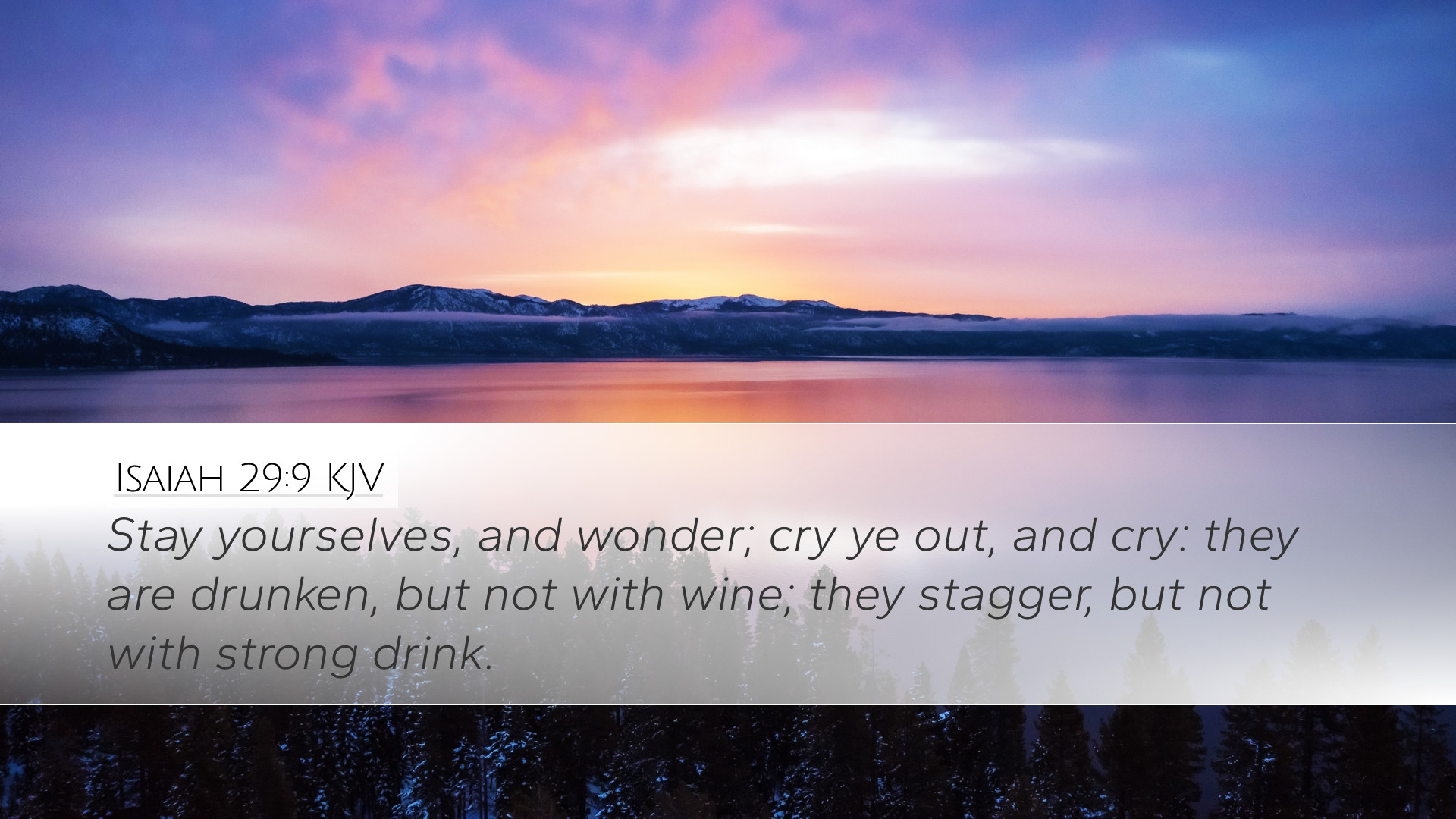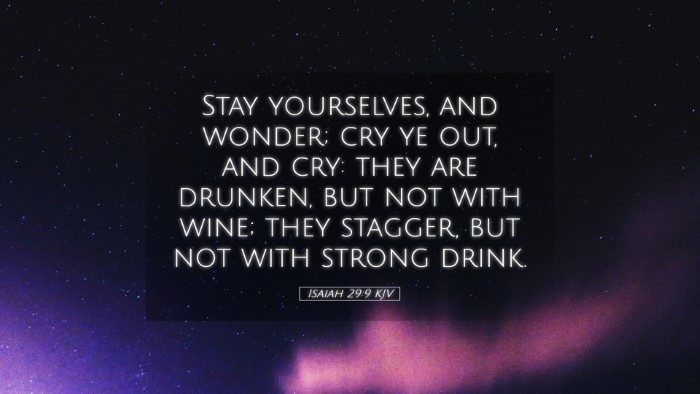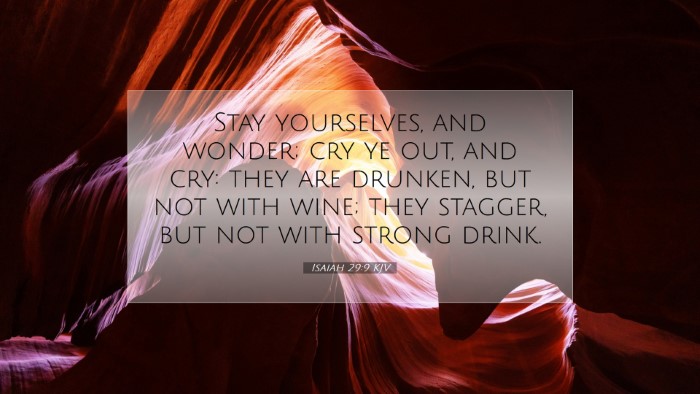Isaiah 29:9 - Commentary Summary
Verse Text: "Stay yourselves, and wonder; cry out, and cry: they are drunken, but not with wine; they stagger, but not with strong drink." (Isaiah 29:9)
Context and Background
Isaiah 29 is a prophetic chapter that deals with the coming judgment on Jerusalem and the implications of spiritual blindness. The imagery of drunkenness is particularly striking, suggesting a state of confusion and spiritual stupor that befalls the people of Judah due to their rejection of God’s word.
Matthew Henry’s commentary emphasizes that this passage critiques the state of the people who, amidst their religious observances, fail to perceive the truth of God’s messages conveyed through the prophets.
Interpretation of Terms
- “Stay yourselves”: This phrase suggests a need to pause, reflect, and acknowledge the gravity of their situation. The call to "wonder" indicates an invitation to perceive the truth behind their spiritual condition.
- “Cry out”: This term carries the weight of urgency and desperation. The people are encouraged to express their confusion and seek clarity in their spiritual state.
- “Drunken”: Often associated with intoxication, in this context it signifies a deep spiritual blindness and moral decay. Their 'drunkenness' is not from external substances but from their alienation from God.
Theological Insights
Spiritual Blindness: Both Albert Barnes and Adam Clarke highlight the metaphor of drunkenness as an illustration of the Israelites' inability to see clearly the consequences of their actions. They are intoxicated by their own false security and complacency.
Divine Judgment: The passage serves as a precursor to the themes of judgment and restoration that are foundational to Isaiah’s message. The spiritual stupor described here is indicative of broader societal decay and divine retribution.
Exegesis and Application
Matthew Henry notes that the people are caught in a cycle of wonder and disbelief, demonstrating a form of cognitive dissonance. They see the signs of impending judgment yet remain in a stupor, unable to respond appropriately.
Albert Barnes elaborates on this cycle, suggesting that the warning is both an indictment and a call to repentance. The passage encourages the faithful to awaken from their stupor and return to a sincere pursuit of God.
Adam Clarke stresses the importance of being aware of spiritual distractions that lead to a false sense of security. The understanding that one's spiritual life can be compromised leads to a sobering realization of the critical need for vigilance and discernment.
Encouragement for Leaders and Believers
For pastors and spiritual leaders, this verse serves as a reminder of the importance of discernment in ministry. Just as Isaiah called the people to awareness, modern leaders are tasked with guiding their congregations to recognize the subtle ways in which they might become spiritually drunk.
Reflection for Students and Scholars: Those studying theology should reflect on the implications of spiritual blindness in contemporary society. How might this metaphor apply to today’s church? What are the 'drunken' distractions that prevent a clear vision of God's will?
Conclusion
Isaiah 29:9 encapsulates a powerful moment of self-examination and divine warning. In drawing upon the insights of respected biblical commentators, we are reminded of the necessity for alertness in our spiritual lives. Just as the Israelites faced the perils of spiritual ignorance, so too do we need to confront the distractions and confusions of modernity that hinder our relationship with God.
Ultimately, this call to awareness is an invitation not just to individual reflection, but to communal responsibility in fostering a community that seeks clarity and truth in the Word of God.


